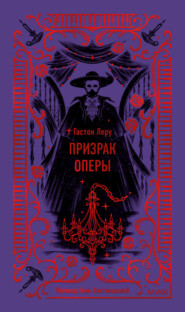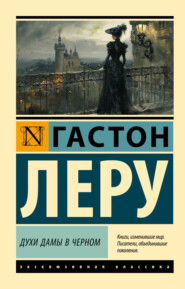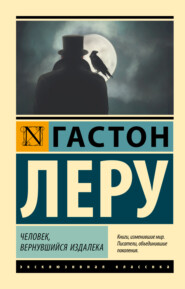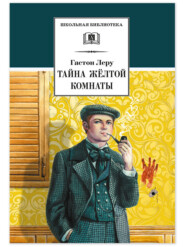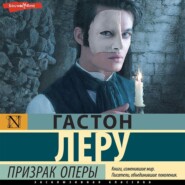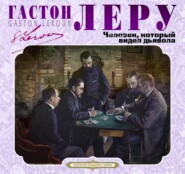По всем вопросам обращайтесь на: info@litportal.ru
(©) 2003-2025.
✖
The Bride of the Sun
Автор
Год написания книги
2018
Настройки чтения
Размер шрифта
Высота строк
Поля
Titicaca, in its mountain cradle, is the highest lake in the world. That night, its waters looked somber and heavy, almost dead. A storm, growling in the distance, soon swept down on them with a howl of rain, the waves dashing up the beach mountain-high, and the lightning touching the surrounding peaks with fire.
“Splendid, splendid,” muttered Orellana as the storm broke. “That means fine weather for to-morrow. In the meantime, we may as well have supper.”
He had led the young man under a giant monolith, hewn to the shape of a door. In a niche of it, Orellana managed to light a dung-cake fire, and here they ate a little and warmed themselves with generous pulls at the pisco flask. Dick at last fell asleep, while the old man covered him with a horse blanket and paternally watched over his slumbers.
Just before dawn, Dick awoke to find Orellana reminiscent.
“This place has always brought me luck since I started to look for my daughter, but I cannot make out who to thank for it. Do you know who this god is?”
He pointed to the bas-reliefs which covered the stone. They represented a human being, the head adorned with allegorical rays, and each hand holding a different scepter. Around this being were symmetrically ranged other figures, some with human faces, others with the heads of condors, all holding scepters, and all facing toward the center.
“There’s no doubt about it,” mused Orellana aloud. “This is nothing like the Incas’ work. It is much more sculptural, and much older. There must have been worlds on these shores before the advent of the Incas. They’re only savages who steal children.... Well, come on. We may as well go out in my boat and meet the sun.”
In a little creek, half hidden by rushes, they found a cane pirogue, in which Orellana had soon hoisted a mast and a mat sail.
“Come on,” he said, “we’ll do some fishing. It’s all on the way to the Temple of Death.”
Dick followed him into the fragile craft, and they started for the islands. These came into sight late in the afternoon, a blue blur on the horizon. To Dick’s fevered imagination, they seemed like threatening shadows on the face of the waters, ghostly guardians of the Temple of Death.
Orellana refused to go any nearer that night, hauled down the sail, and threw overboard a heavy stone to anchor his boat. Then he handed Dick a fishing-rod. At his astonished look, the madman replied:
“People come to the islands to fish, because these waters are blessed by the gods and the catches are better than anywhere else. Can’t you do what everybody else does?”
He pointed across the waters to little lights flaring up at the bows of other pirogues, in which sat motionless fishermen.
“All those Indians are fishing,” he said. “You may as well join them. If you can’t, go to sleep, and don’t worry us. You’ll see something worth while when you wake up.”
Orellana woke Dick just before dawn. The last stars were paling in the heavens at the approach of their King. The deep waters of the lake showed uniformly gray, not a light and not a shadow upon them. Not a sound to break stillness, not a breath of wind in the air. Suddenly, in the Orient, the mountain peaks were touched with fire, a giant furnace sprang into being behind the torn curtain of the Cordilleras, and the sun painted scarlet splashes into the shadows of the sacred islands.
When they pass before the largest of them, which is Titicaca, the Indian fishermen in their fragile pirogues never fail to chant the Aïmara Hymn of the Ancestors, for it was from this island, untold years ago, that sprang the founders of the Inca race in the persons of Manco Capac and Mama Cello, husband and wife, brother and sister, both children of the Sun. Coming in sight of the island, the traveler perceives giant ruins and great masses of rock piled up in an inexplicable manner, so strange that science has not yet been able to give them a date. These are the baths, the palaces and temples of the first Incas.
Dick, staring landwards from the pirogue, hardly knew whether he was awake or dreaming. Was this a hallucination born of the terrors of the week, or did his eyes really reveal what other eyes had first adored centuries before, at the dawn of the Inca world? As the shadows of night drew away and the island stood out above the waters in all its terrestrial grandeur, he did not merely see dead stones, lifeless temples, and deserted palaces; the Cyclopean whole was peopled by a vast throng, motionless and silent, its myriad faces turned to the flaming Orient. This immobility and silence were those of a dream; there were thousands there who seemed to live and breathe only in the expectation of some mysterious and sacred event.
The disc of the sun was still hidden behind the Andes, but all Nature heralded its approach; the flanks of the mountains were jeweled with a thousand dazzling stones, brooks and torrents were afire, and the broad bosom of the lake was a roseate mirror bearing the still reflections of palaces and temples. Virgins, bearing, as of old, the most beautiful flowers of the season and the emblems of their religion, peopled the porticoes. At the summits of towers, luminous with the dawn, priests waited for their god to show his face.
Suddenly, he appears… he rises… he blazes down on his empire, and is hailed by a great roar. “Hail, O Sun, King of the Heavens, father of men!” Earth trembles, waters shiver, the heavens even quiver at the call. “Hail, O Sun, father of the Inca!” Arms are stretched toward him, hands heavy with offerings implore his intercession, and every voice chants his glory. “Hear thy children! Hail, O Sun!”
Cries and songs of triumph are swelled by the clamor of barbaric instruments, and the tumult grows as the radiant disc climbs higher in the heavens, bathing the multitude in light.
Sun, behold thy Empire! After so many centuries, the faithful, the men who labor in valley and mountain, are still here, and still do thee obeisance. The golden-armed virgins have poured libations from the sacred vases, and the hymns of the priests, after having risen to the heavens, now seem to plunge into the earth.
What is this miracle? The dream has vanished; vanished as do the light mists of morning before the first rays of the sun.
BOOK VI—THE TEMPLE OF DEATH
I
Dick rubbed his eyes. What had become of that crowd? Who had hailed the god of Day? Now that the sun was high on the horizon, and that things had taken on their true shapes again, he could see only ruined palaces and solitude.
Orellana had driven his pirogue to the shore, and jumped onto the beach, signing to the young man to follow. As they neared the cliffs, he stopped him; the pious throng had vanished, but not in a dream, for the sound of chanting could still be heard from within the rock.
“Come with me,” said the old man. “They have gone to the Temple of Death, but we shall be there before them.”
They entered a grotto. Dick had no will but Orellana’s, and no hope. He was convinced that Maria-Teresa must die, and regarded that last greeting of theirs as the supreme one. Once certain that she had passed to the realms of night, he would follow her there. He had been told she was to end her life in the Temple of Death, and this old man, who ten years before had lost his daughter in the same way, said he knew where it was. Well, he would follow him.
The grotto was a deep one. After walking for a few seconds over sand and shells, the old man lit a resinous torch, and the spluttering flame showed the dark entrance of a passage. Before entering it, however, he bent down in a corner and picked something up. Dick saw that it was a pick.
“What are you going to do with that?”
“Save my daughter, of course! Just come with me, and I’ll show you. I shan’t let those devils choke her as they did ten years ago. They wall them up alive, you see. All we need do is to wait until they have gone, and then take her out again. Clear enough, isn’t it?… When I discovered the Temple of Death and saw all the slabs on the wall, I said to myself: ‘It would have been easy enough to save her if I had been there.’ It was too late then. And of course, I didn’t know which stone she was behind. This time, though, I shall watch them.... We’ll get the best of them yet. See if we don’t!”
There was hope, then! Dick took a long breath, and steadied himself. Madmen with their set ideas are sometimes nearer the truth than sane men with their set reason. Dick took the pick, and followed Orellana down the winding passage, the torch in the old man’s trembling hand throwing weird lights and shadows on their path. There was not a foreign sound to be heard. The earth had choked all noise as it might yet choke them.
Hacked through the stone, their corridor opened at intervals onto little square rooms, probably the burial-places of long-forgotten priests and dignitaries, slumbering there as their brethren of ancient Egypt slumber in the Pyramids. In the last of these rooms, Orellana put out the torch, and fell on his knees, for the narrow gut which they now entered was far too low for a man to stand upright in. A few yards further on, they came to a spacious niche, and stood up again.
“We are there,” said the old man, stopping Dick.
It was far less dark here, and Dick, his eyes growing used to the obscurity, realized that a diffused light was reaching them from somewhere. The shadowy outline of columns and cornices gradually took shape, and he realized that he was looking down from a height of several feet into a vast hall.
“That is the Temple of Death,” said Orellana. “Listen!”
From the distance came the sound of rhythmic chanting, and suddenly a blinding stream of light descended into the chamber before them. Instinctively, they threw themselves back into the darkest corner of their niche. Above them, at the summit of the vast subterranean hall, a stone had been removed, letting in the golden sunlight. In the heart of the vault was a kind of truncated cone, so fashioned that the sunbeams, sliding along its surface, were thrown into the farthest corner of the mysterious temple.
Altars, altar-steps, and niches were heavy with gold, the plaques of the precious metal being bound together by a wonderful cement, to make which liquid gold had been used. This hidden temple was, in a word, a veritable goldmine.
On the eastern wall was an image of the divinity, wrought in massive gold, and representing a human head surrounded by shafts of light. So the old world has also represented the sun. The heavy plaque was studded with emeralds and other precious stones. The rays of the rising sun fell full upon it, filling the whole temple with a light that seemed almost supernatural, and flashing back from the gold ornaments with which walls and vault were incrusted. Gold, in the poetic language of the country, is “the tears shed by the Sun,” and the Temple blazed with the precious metal. The cornices crowning the sanctuary walls were also of gold, and a frieze of gold, hammered into the stone, ran right round the hall.
Dick and Orellana, from their coign of vantage, could see a number of chapels placed symmetrically round the great central chamber. One of them was sacred to the Moon, mother of the Incas. Her effigy was almost identical with that of the Sun, but the plaque was of silver, recalling the soft glow of that gentle planet. Another chapel was dedicated to the Armies of the Heavens, which are the stars and the brilliant court of the sister of the Sun; a third, to thunder and lightning, the terrible ministers of her wrath; yet another, to the rainbow. And in all these chapels, as in the temple, all that was not silver was gold, gold, gold.
The young engineer’s eyes gradually took in all the details of the temple. First, the central altar, several steps above the floor, on which were golden vases brimming over with maize, incense-burners, ewers for the blood of the sacrifice, and a great golden knife on a tray of gold. Then he realized that something living was moving in the hall, which he had thought deserted. The Guardians of the Temple, like three hideous gnomes, glided from altar to altar, while the one with the cap skull, given the taste for blood from his earliest years by this deformation of the cranium, urged the others to hasten, and every little while went to the main altar to pat the great knife waiting there. Behind the altar, and rising above it, was a kind of golden pyramid, crowned with a golden throne. “That is for the King,” said Orellana. On each side of the altar, and before it, were three other pyramids. But they were not so high, and were not of gold. They were of wood. “The pyres,” explained Orellana.
“The pyres! What do you mean, man?”
“Steady, steady! They’re not going to burn her. She’s the Bride of the Sun, and they wall her up. Burn her, indeed! It’s not done, I tell you. Every Aïmara child knows that. Little children don’t see the Temple of Death unless they are to die in it, but they know that much. Burn my daughter, indeed! As if I would allow it! What do you think I brought this pick for? You do just as well not to answer. Much better remain silent than talk nonsense like that. If you look at the walls out there you’ll see a big porphyry slab between each gold panel. There are just a hundred of them, and behind each one is one of the Sun’s brides. If I only knew which tomb my daughter was in, I would have had her out a long time ago. But the slabs are all just alike, and there is nothing to help a poor father in his search. This time, though, I’m watching, and as soon as they’ve gone, I shall save her.”
“She may be dead, smothered alive, when you get her out.” Dick, thinking hard while the old man babbled on in whispers, was hoping against hope.
“That just shows how little you know about it. They are deep tombs, like cupboards, and you can sit in them. Don’t you know the Indians always bury people sitting? There’s air enough in there to keep her alive for an hour, or even two. And I shall have her out in ten minutes!”
Dick stared blindly at the porphyry slabs before him.
“But if there are a hundred of them in there already, there isn’t room for another. Are you sure?”
“Of course I am. You needn’t worry, boy. The pyres are for the two mammaconas who go before the Bride to prepare her chamber in the Enchanted Realms of the Sun.”
“There are three pyres, though.”
“Naturally. They have to take out the oldest bride to make room for my daughter. Then they burn her. What else should they do?”







